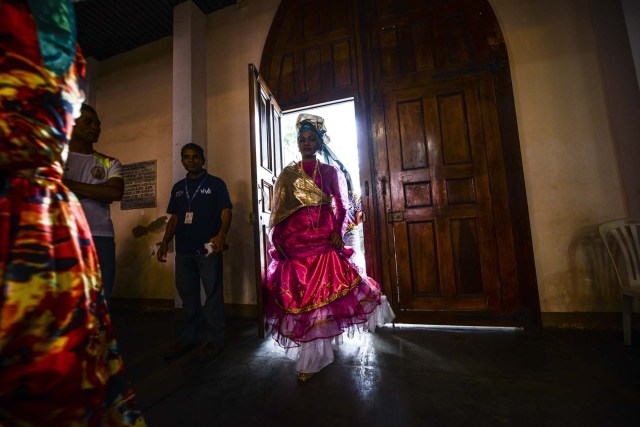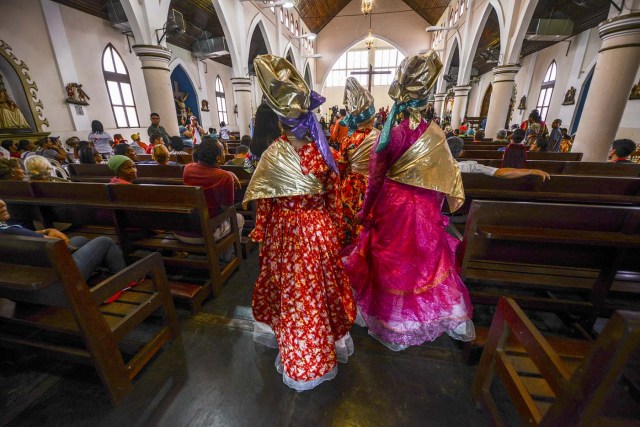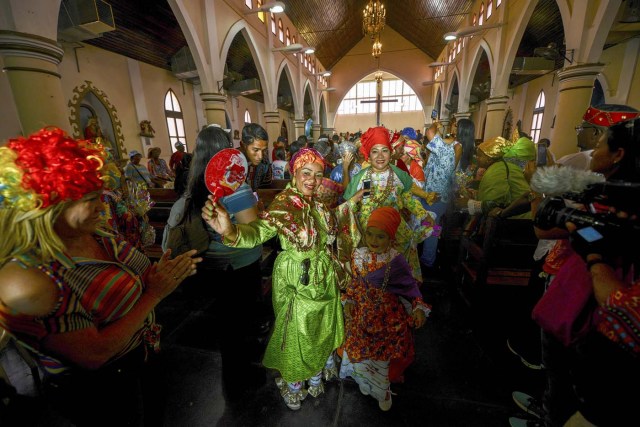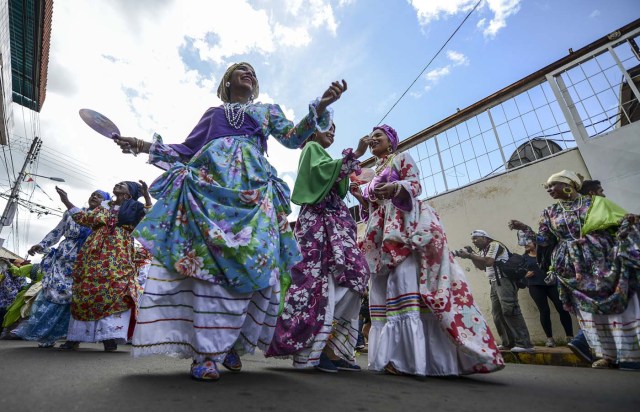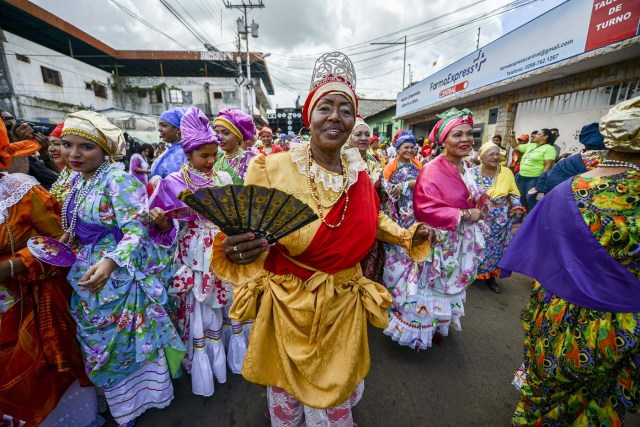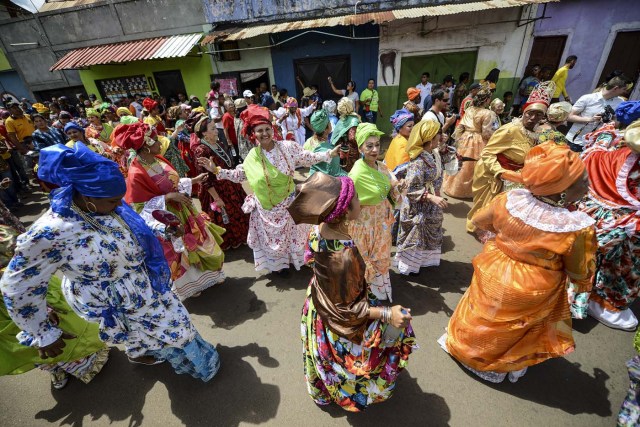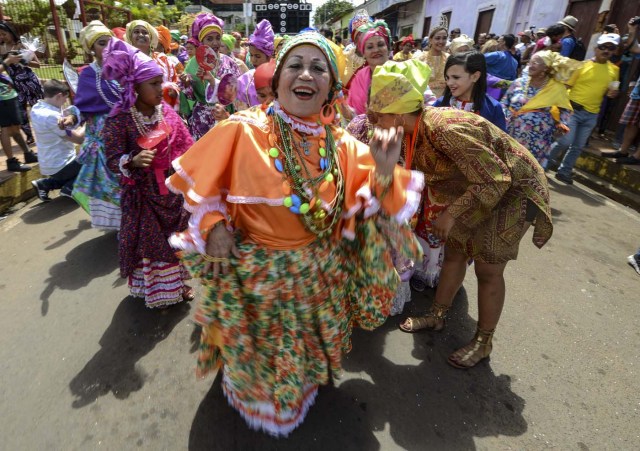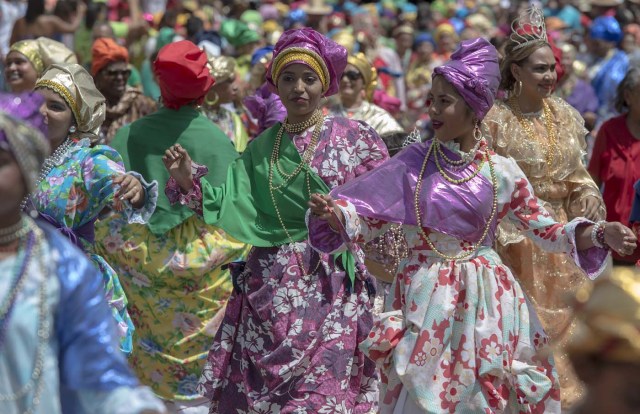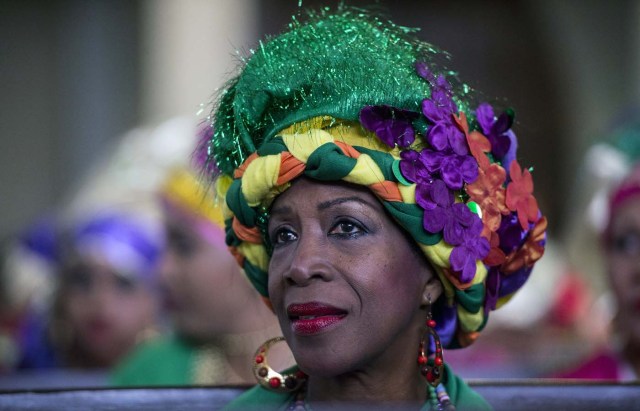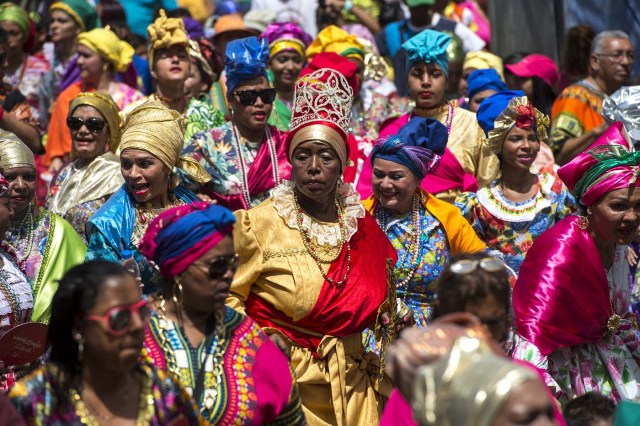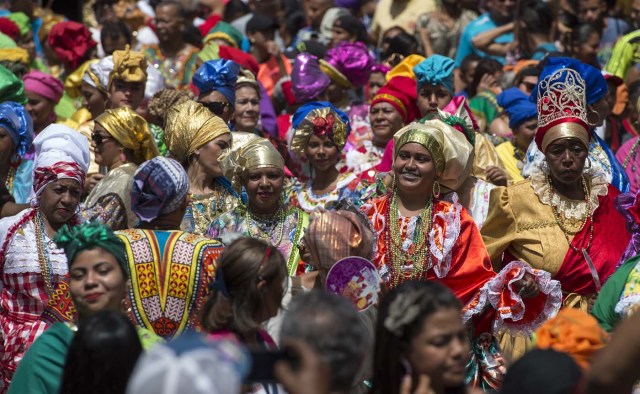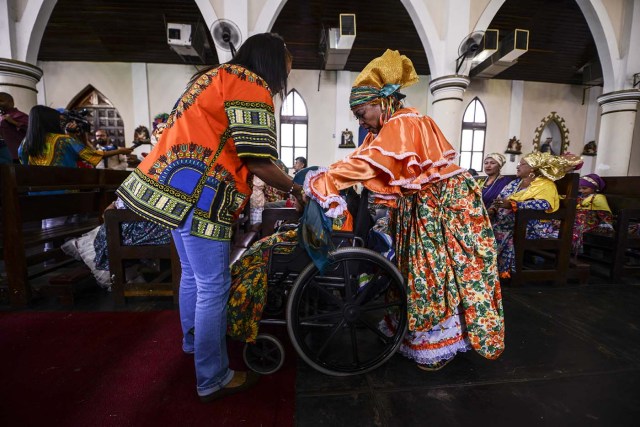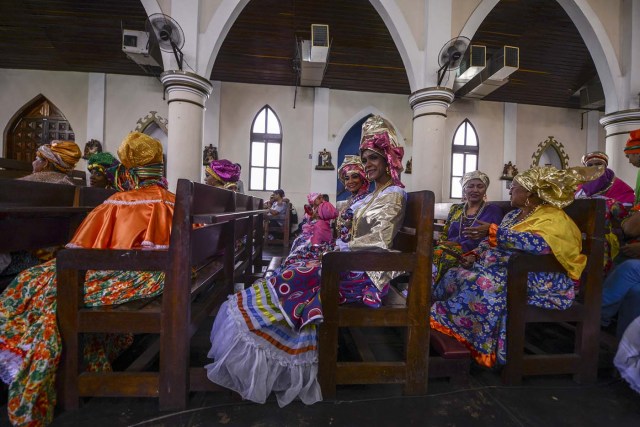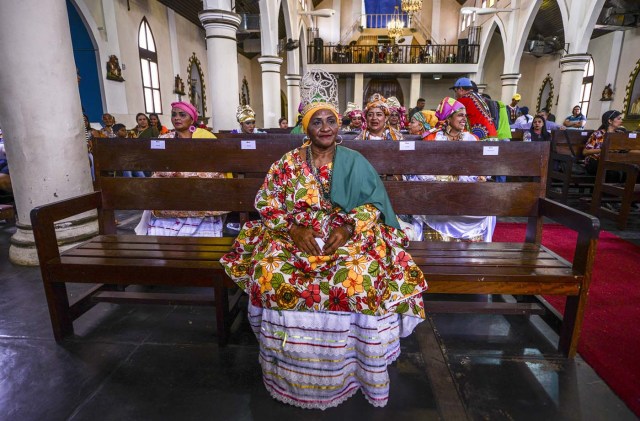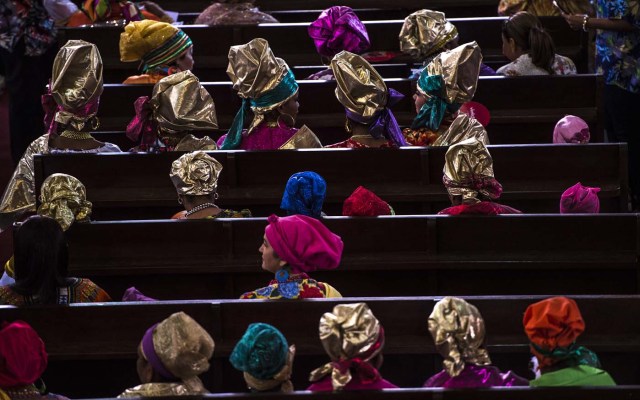
Ataviadas con elegantes trajes multicolores, turbantes y collares, decenas de mulatas de un pueblo minero del oriente de Venezuela llamadas las ‘Madamas’ abrieron este domingo el Carnaval de El Callao, recientemente galardonado por la Unesco.
Con cantos religiosos a ritmo de calipso, se celebró la tradicional Misa de las Madamas, que da el banderazo de salida a la centenaria festividad de este pueblo, ubicado a 850 km al sureste de Caracas y cuya población de 21.000 habitantes se triplica con la masa flotante que llega de todo el país en busca de oro a esta zona del estado Bolívar.
“Estamos muy orgullosos. El reconocimiento de la Unesco nos compromete a seguir trabajando para engrandecerlo, no dejarlo caer pese a la situación del país”, dijo a la AFP la recién coronada reina de las “Madamas” Josefina Briceño, una secretaria jubilada de 63 años, con traje dorado y turbante rojo que resaltan el color negro de su piel.
Venezuela sufre una severa crisis económica y una desbordada criminalidad que golpea con fuerza a El Callao y a otros pueblos de esta región rica en oro, donde operan bandas de mafiosos que se dividen el control de las minas.
Como todo en el país, el carnaval tampoco escapa a la polarización política. El gobernador de Bolívar, Francisco Rangel, es chavista y el acalde de El Callao, Coromoto Lugo, opositor.
A la misa asistió la ministra de Turismo, Marleny Contreras, esposa de Diosdado Cabello, uno de los dirigentes más poderosos del gobierno, y representantes del Ministerio de Cultura, quienes entregaron a cultores del pueblo la distinción de la Unesco.
Pero más allá de la crisis y la política, la catarsis del pueblo empezó. Tras la misa, las “Madamas” , con sus trajes elaborados en finas telas y vivos colores, desfilaron por las calles del pueblo, bailando calipso.
Esas mujeres, que recuerdan a las antillanas de habla francesa e inglesa que atendían las casas de los mineros, son los principales personajes del carnaval, junto con los diablos que resguardan las comparsas con látigos y enormes máscaras de cuernos y colmillos.
El Carnaval realza la fusión cultural de este pueblo fundado a mediados del siglo XIX por venezolanos, africanos, antillanos, ingleses, españoles, brasileños y franceses que exploraban la zona, rica en oro.
Haciendo honor al carácter multiétnico y multicultural del Venezuela, el Carnaval de El Callao fue declarado el pasado 1 de diciembre Patrimonio Cultural Inmaterial de la Humanidad por la Organización de las Naciones Unidas para la Educación, la Ciencia y la Cultura (Unesco), reseñó AFP.
Fotos AFP/Juan Barreto
